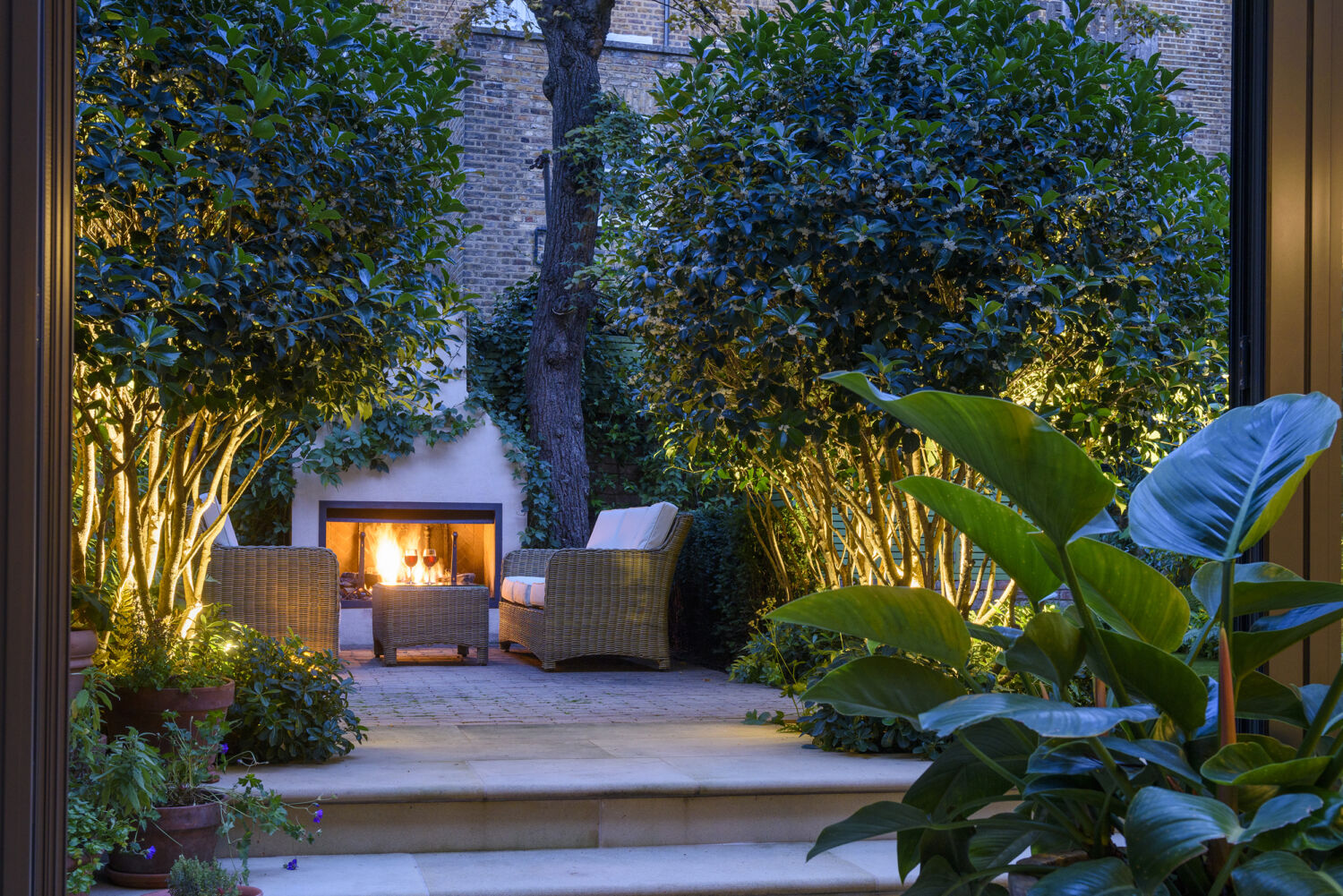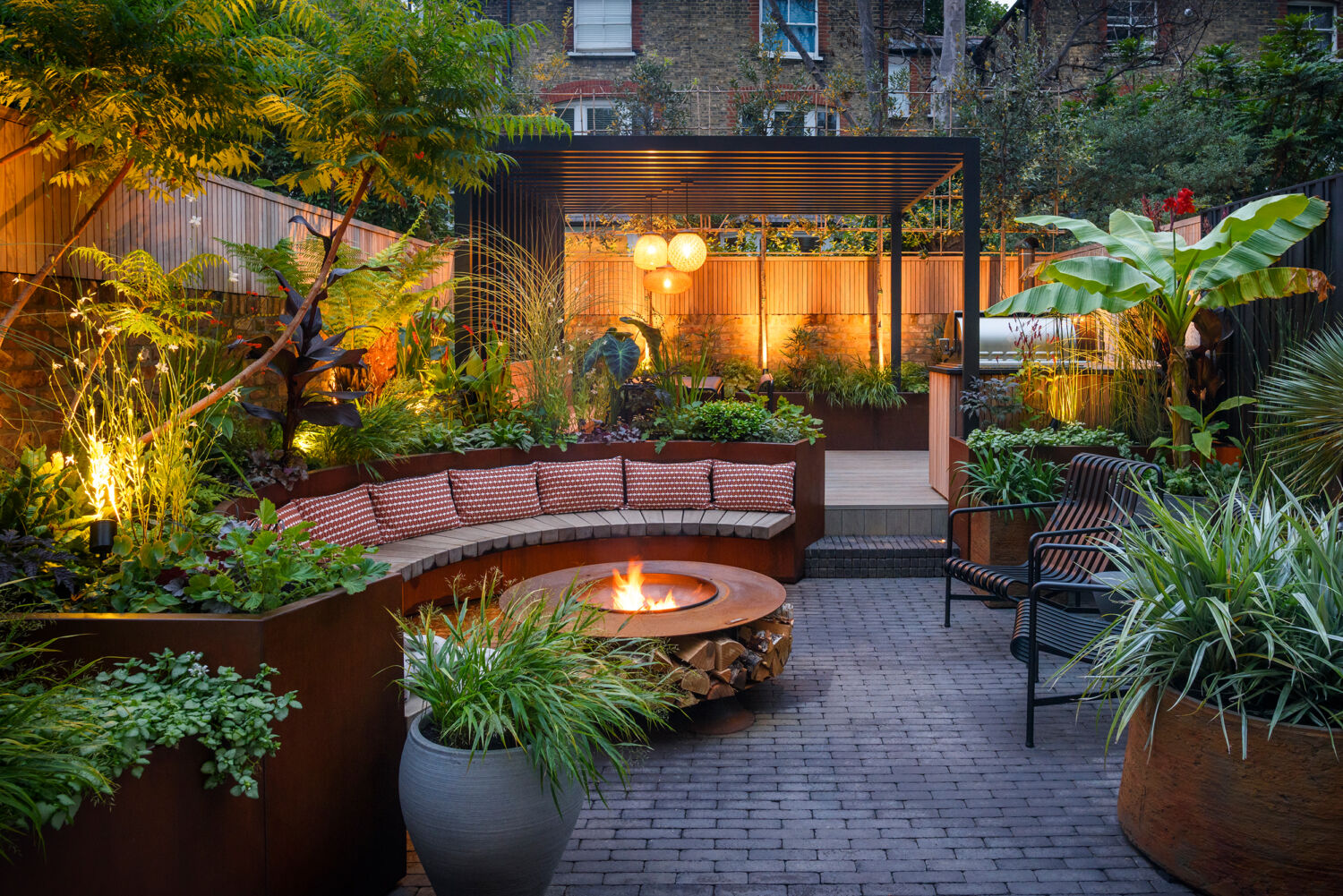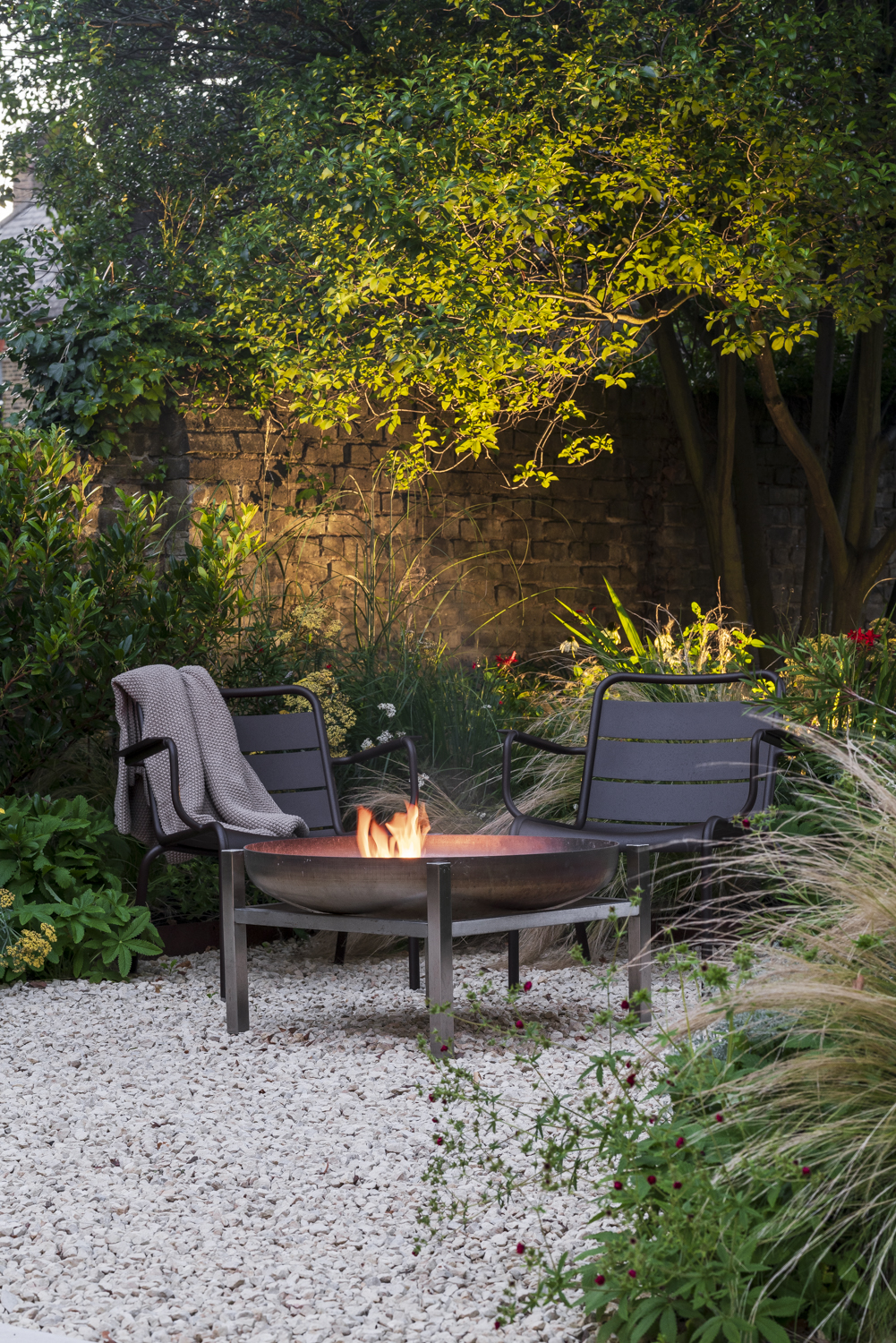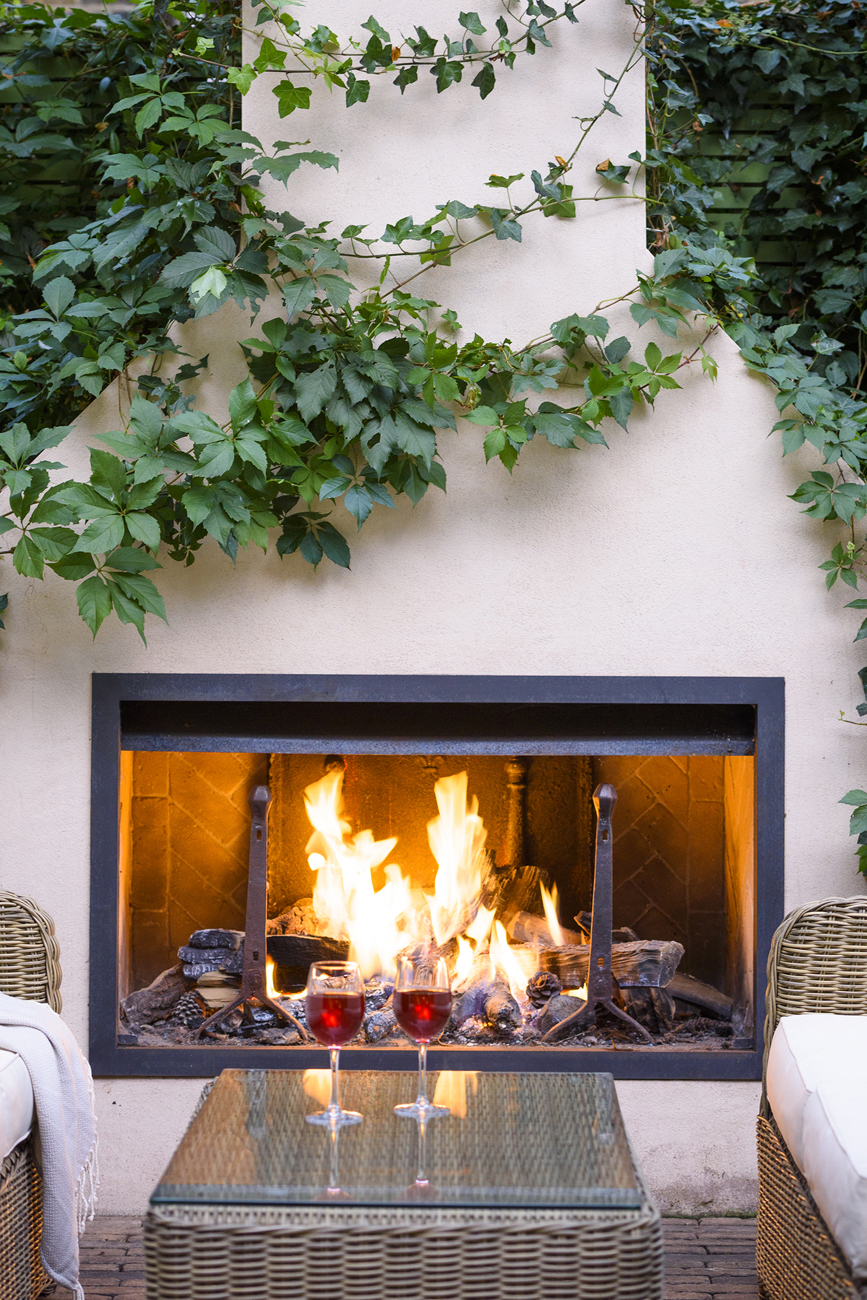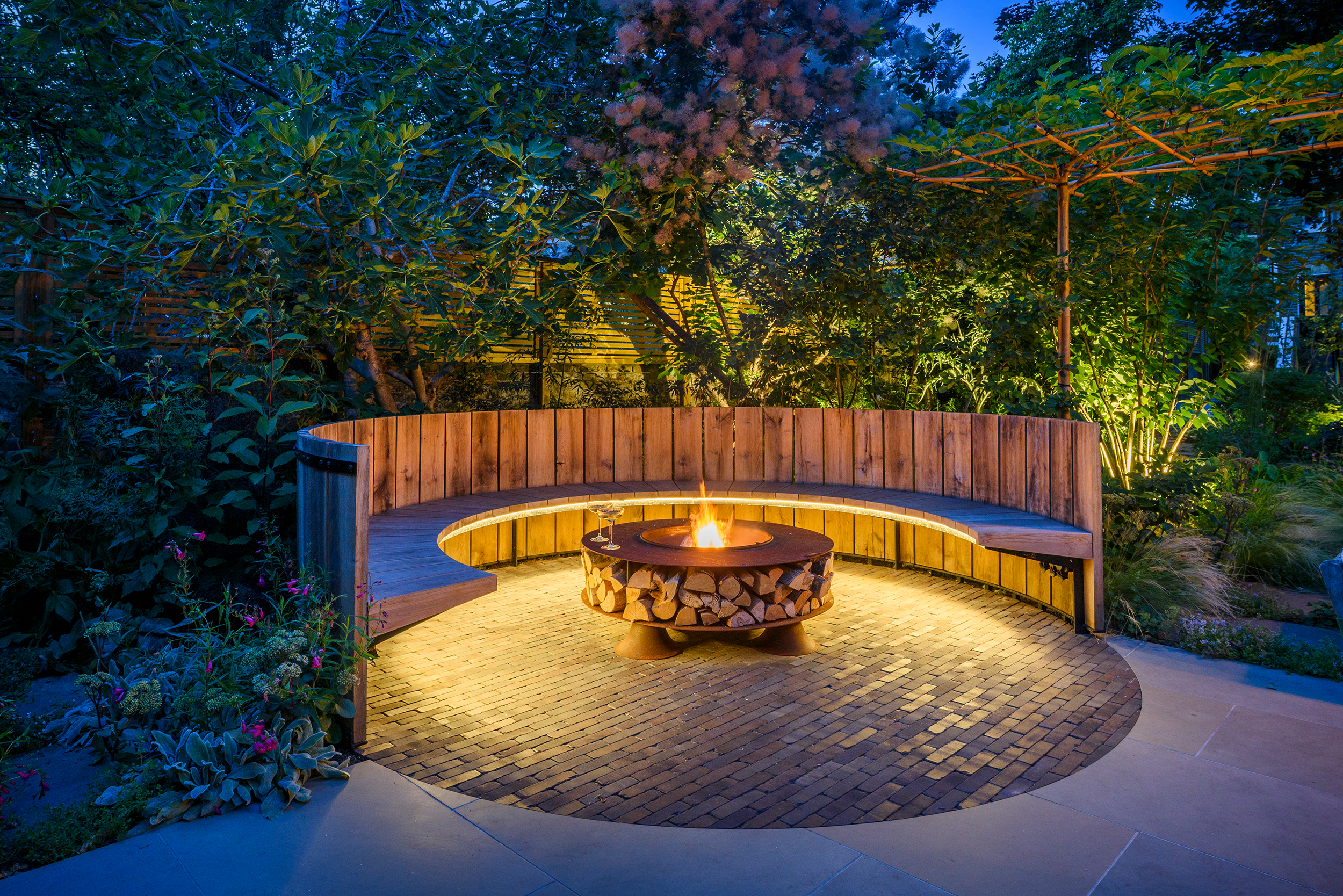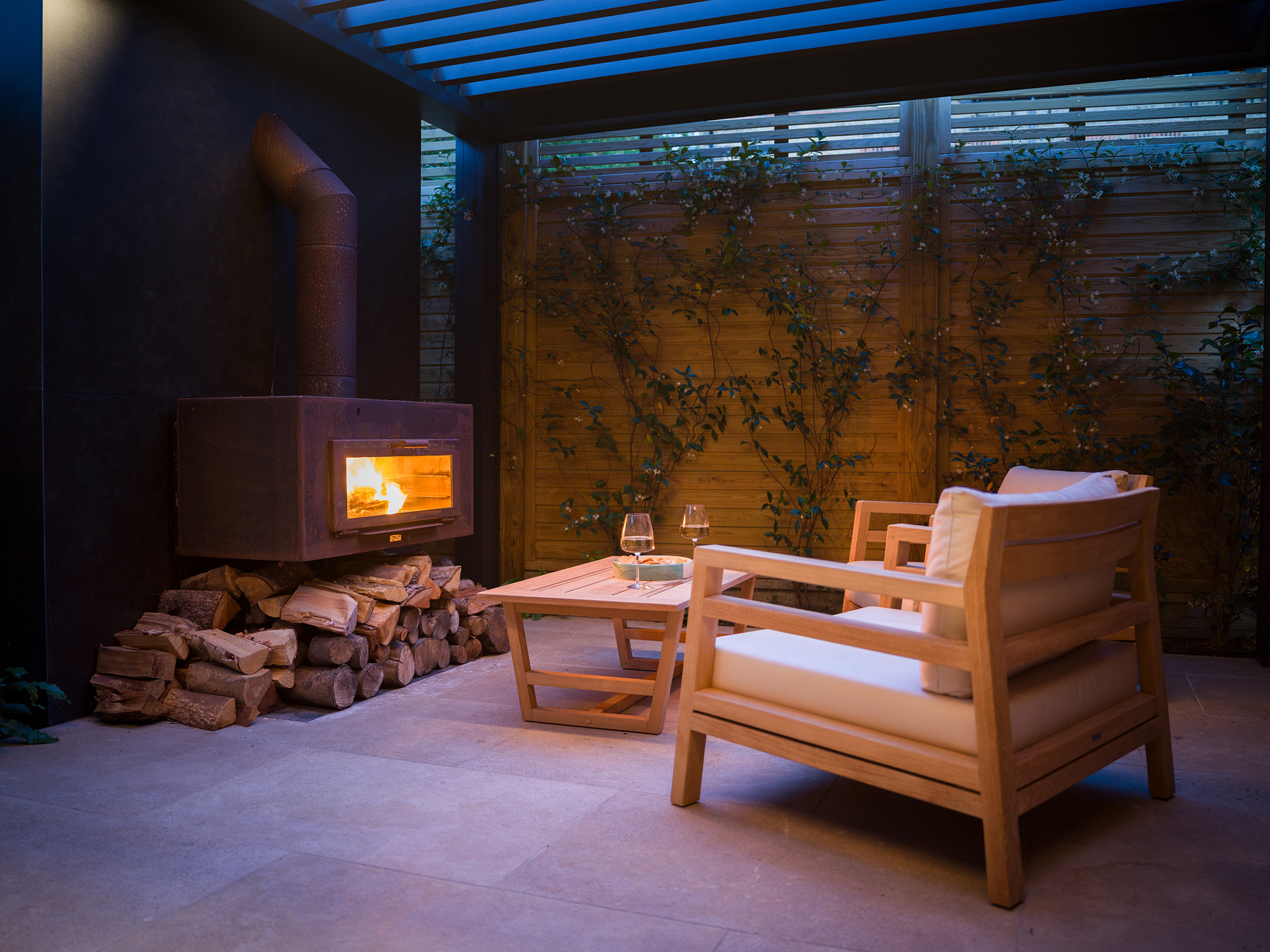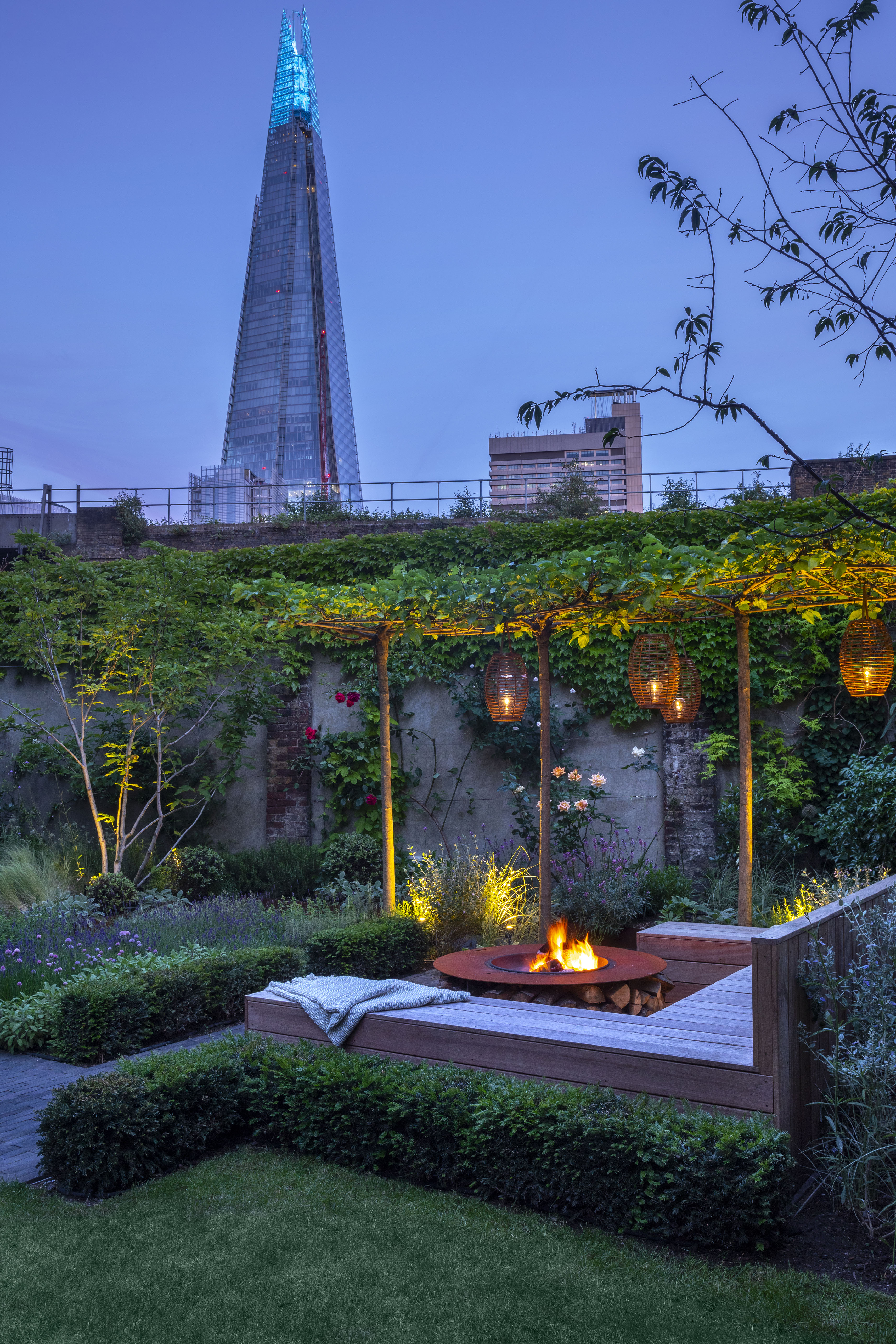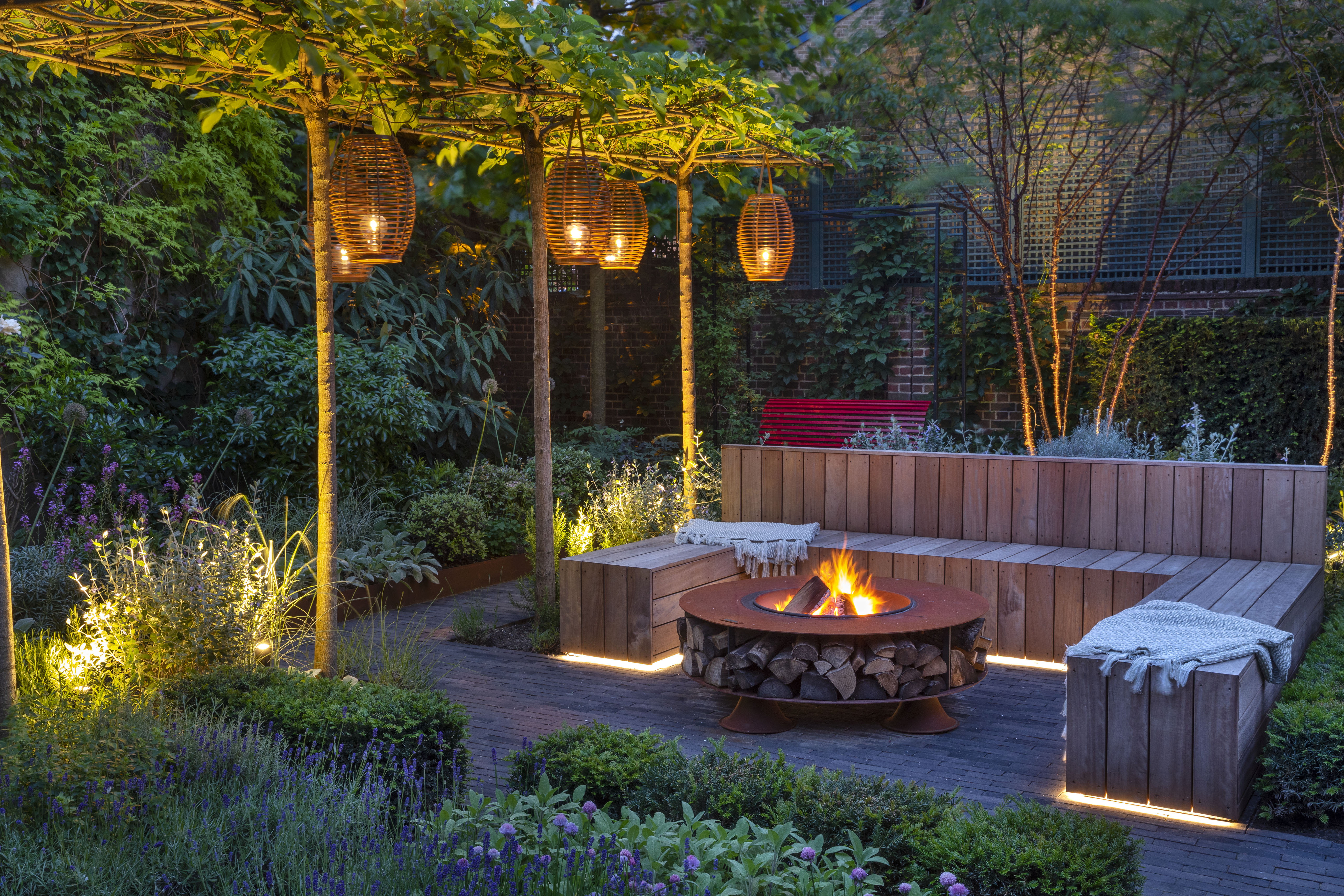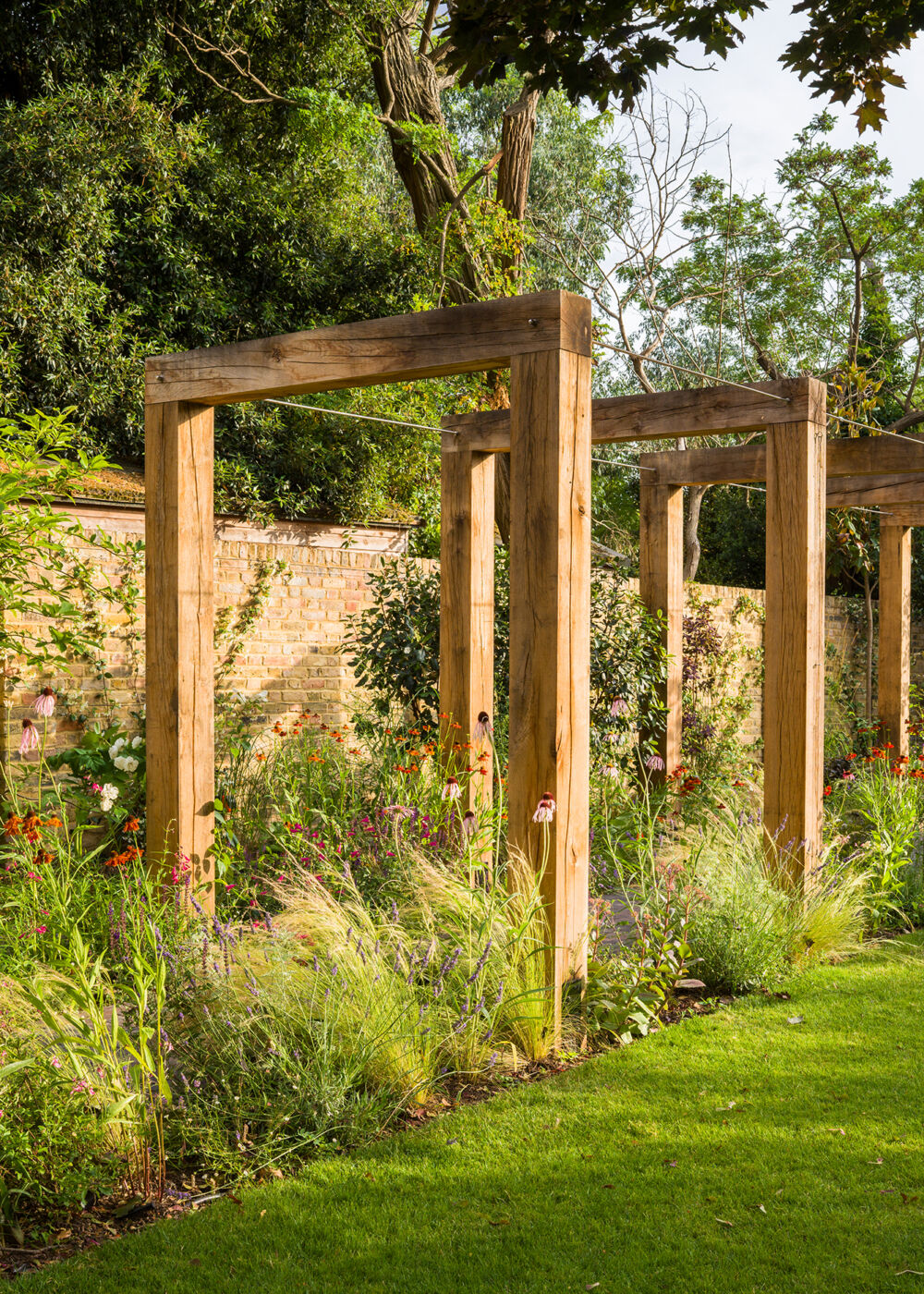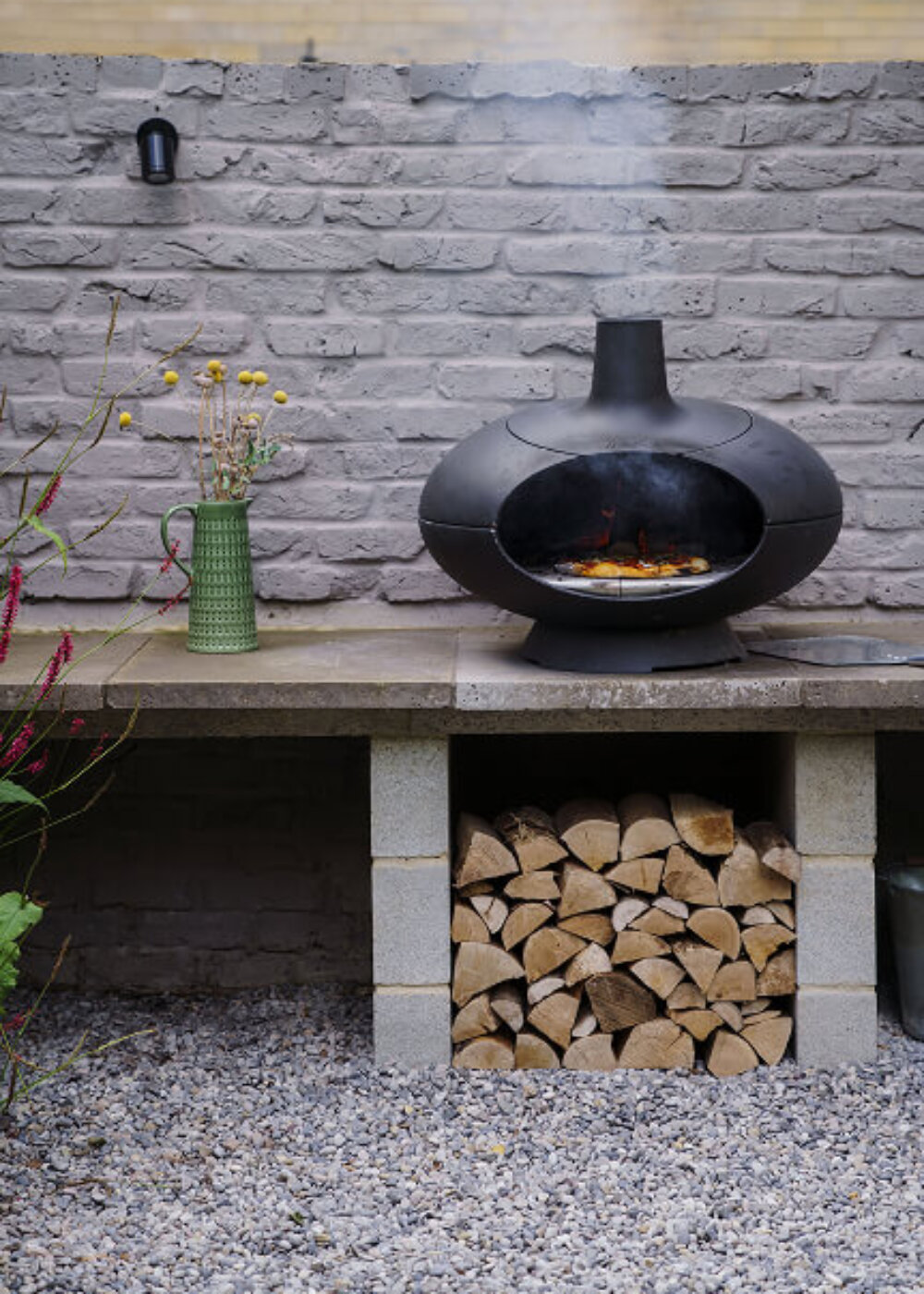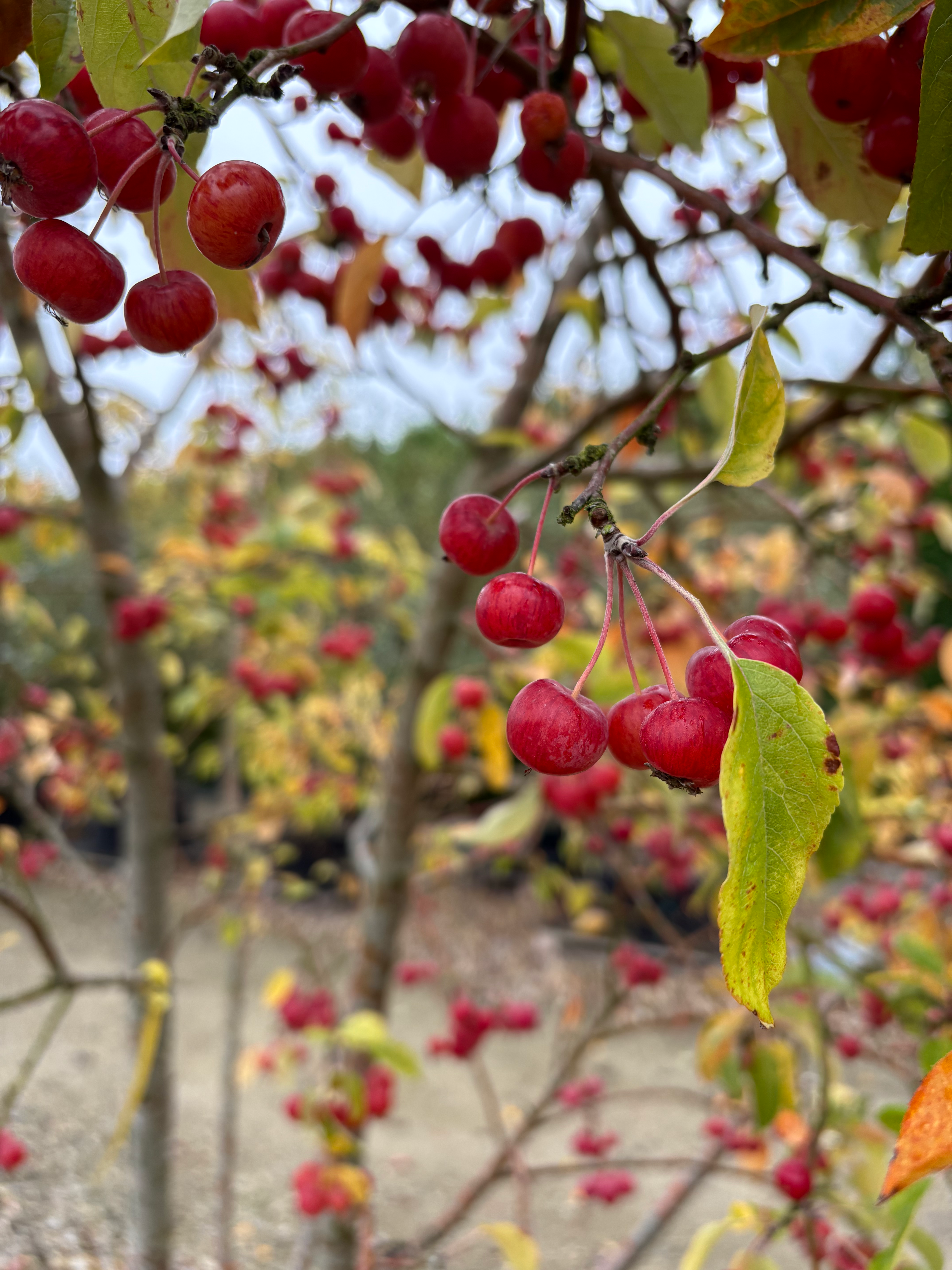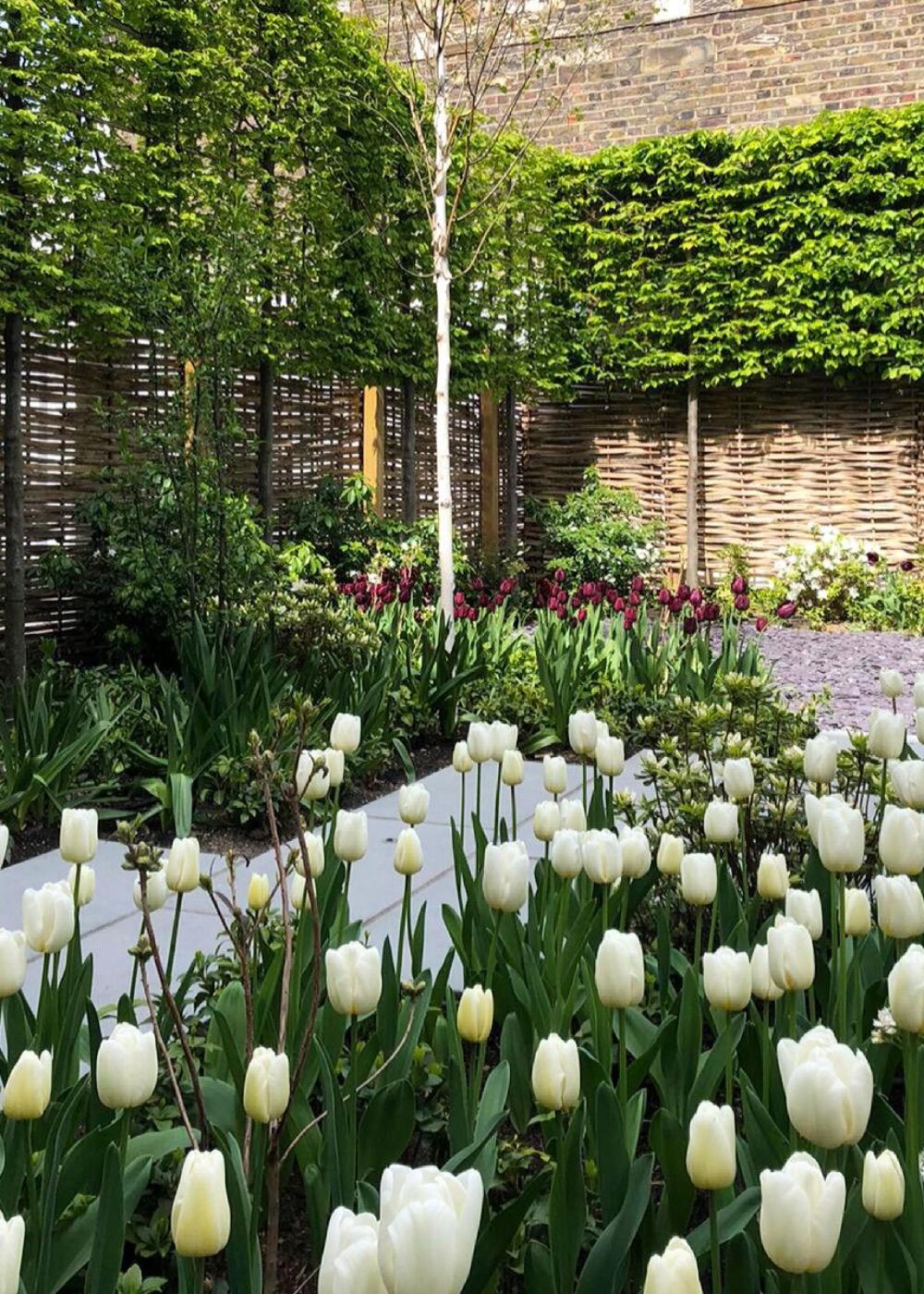
FAQ: Choosing the Perfect Outdoor Fire.
Article by: Lauren Ailish-Skinner
- Advice
- Inspiration
As garden design specialists, we’re often asked about the best fire feature options for outdoor spaces. Whether you’re looking for a romantic flicker of flame or a striking centrepiece, choosing the right fuel type—wood, gas, or biofuel—can make all the difference. In this FAQ, we answer the most common questions to help you decide which is best for your garden.
Q1: What are the differences between wood, gas, and biofuel fires?
Wood, gas, and biofuel fires each offer a genuine flame and warmth, but they differ in convenience, environmental impact, and the type of atmosphere they create.
-
Wood fires provide a classic, traditional experience with the natural crackle and aroma of burning logs.
-
Gas fires (usually natural gas or LPG) offer clean, consistent heat and are easy to control and ignite.
-
Biofuel fires burn renewable fuels such as bioethanol or bio-propane, providing a clean flame with minimal emissions.
Each option creates a real flame and offers authenticity, but your choice will depend on the ambiance, heat output, and maintenance level you prefer.
Q2: What are the benefits of using biofuels for outdoor fires?
We’re seeing biofuel fires becoming increasingly popular due to their eco-friendly appeal and ease of use. In London, common types of biofuels used in outdoor fire features include bioethanol and bio-propane. Both are sustainable, produce minimal carbon emissions, and don’t require a traditional chimney, making them perfect for city gardens.
- Bioethanol is made from renewable sources like plants and crops, offering a clean burn with no harmful byproducts, making it ideal for eco-conscious homeowners.
- Bio-propane is a liquid gas, stored in a canister, and burns efficiently while creating less pollution than conventional fuels.
These fuels are easy to store and refill, offering great flexibility for your outdoor space. Biofuel also provides a consistent, clean flame, with minimal ash or soot, unlike wood-burning fires.
Q3: Which is better for heat, traditional or biofuel?
When it comes to heat output, traditional wood fires and biofuel fires each have their strengths, but there are some key differences.
- Traditional wood fires are known for their robust heat output, making them ideal for larger outdoor spaces or colder evenings. The heat produced by a wood fire is more intense and can warm a larger area, creating a cozy, warming atmosphere. However, they do require more maintenance (wood storage, cleaning up ash), and the heat can fluctuate depending on the type of wood being burned.
- Biofuel fires, on the other hand, produce a more moderate amount of heat. They are perfect for smaller spaces or for those who want a fire feature primarily for ambiance rather than heat. Biofuels, like bioethanol, burn cleanly and provide a steady, but less intense, warmth. They are an excellent choice for mild evenings or as a decorative feature, but they won’t warm an entire garden or patio area the way a traditional wood fire might.
Q4: Are there any local smoke restrictions I should be aware of in London?
Yes, London does have strict air quality regulations due to its urban environment. The Clean Air Act and other local laws regulate smoke emissions from burning fuels, but these mostly apply to internal burners. You can use outdoor barbecues, chimineas, fireplaces or pizza ovens in smoke control areas, at the moment, but if your appliance uses a chimney on the roof of a building i.e. a summer house this is restricted to authorised fuels.
To check whether your area is affected by smoke control restrictions, you can refer to the UK Government’s Smoke Control Areas.
Q5: Which is better for a luxury garden?
If you’re designing a luxury garden with timeless appeal, a traditional wood burner—creates a striking focal point. A wood fire provides both warmth and a captivating visual, and it’s a great way to extend your outdoor enjoyment into the cooler months.
On the other hand, gas or biofuel options can be a stylish solution in smaller spaces where ease of maintenance is a priority. The best choice depends on your priorities: heat output, convenience, environmental impact, and the overall aesthetic you want to achieve.
Q6: Do biofuel fires require a lot of maintenance?
Biofuel fires are generally very low-maintenance. They produce no ash, soot, or smoke, so there’s little cleaning involved. Typically, maintenance consists only of topping up the fuel and keeping the burner clean for safety. This makes biofuel an excellent choice for those wanting a real flame without the upkeep of traditional wood-burning features.
Q7: How can I choose the right fire feature for my garden?
When selecting the right fire feature for your garden, consider the following:
- Purpose: Do you want the fire for warmth, ambience, or decoration?
- Size of your space: A small biofuel fire might work best for a cozy patio, while larger gas or wood-burning options are great for spacious outdoor areas.
- Local regulations: Check if there are any smoke or fuel regulations in your area.
- Maintenance: Think about how much time you’re willing to invest in starting, cleaning and maintaining your fireplace.
Choosing between real fire and fake flames comes down to your specific needs and the atmosphere you want to create. Our team can help you select and integrate a fire feature that complements your garden’s style while offering the warmth and atmosphere you’re looking for.
